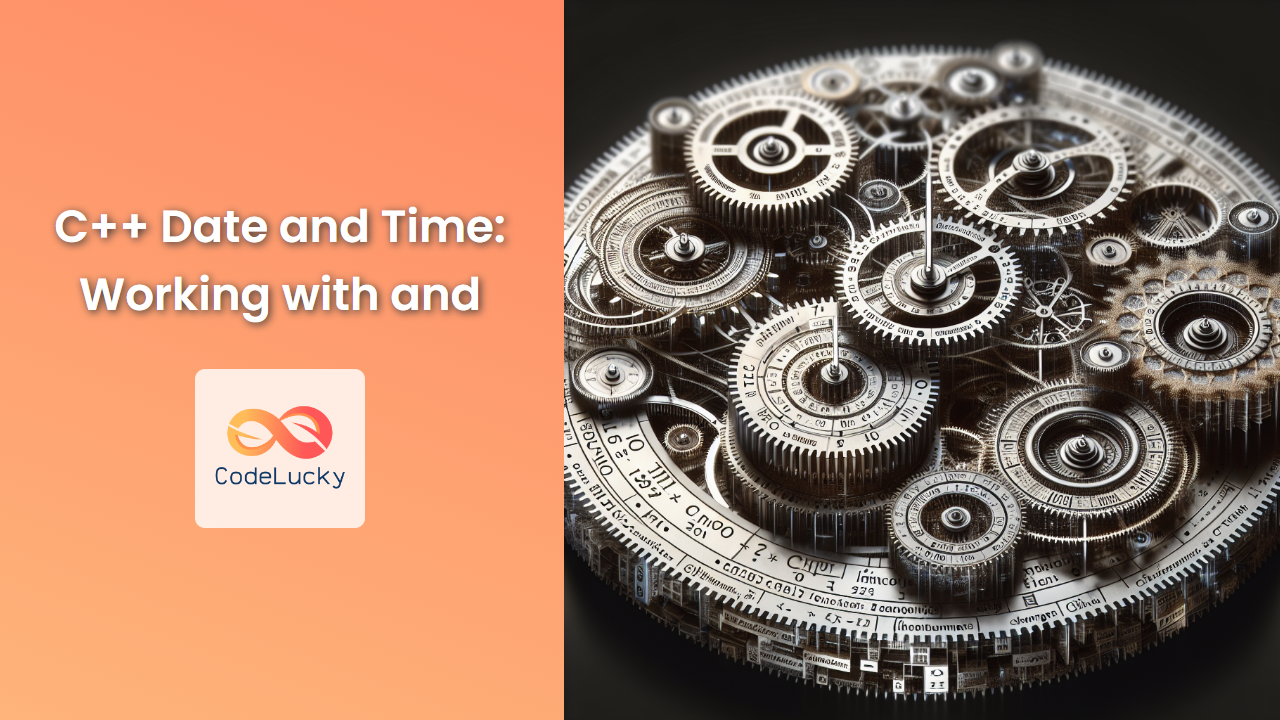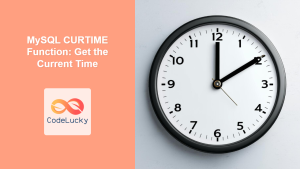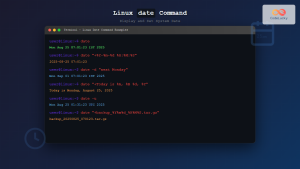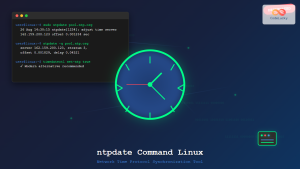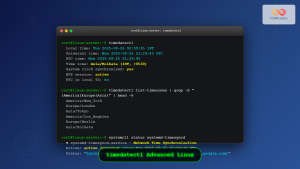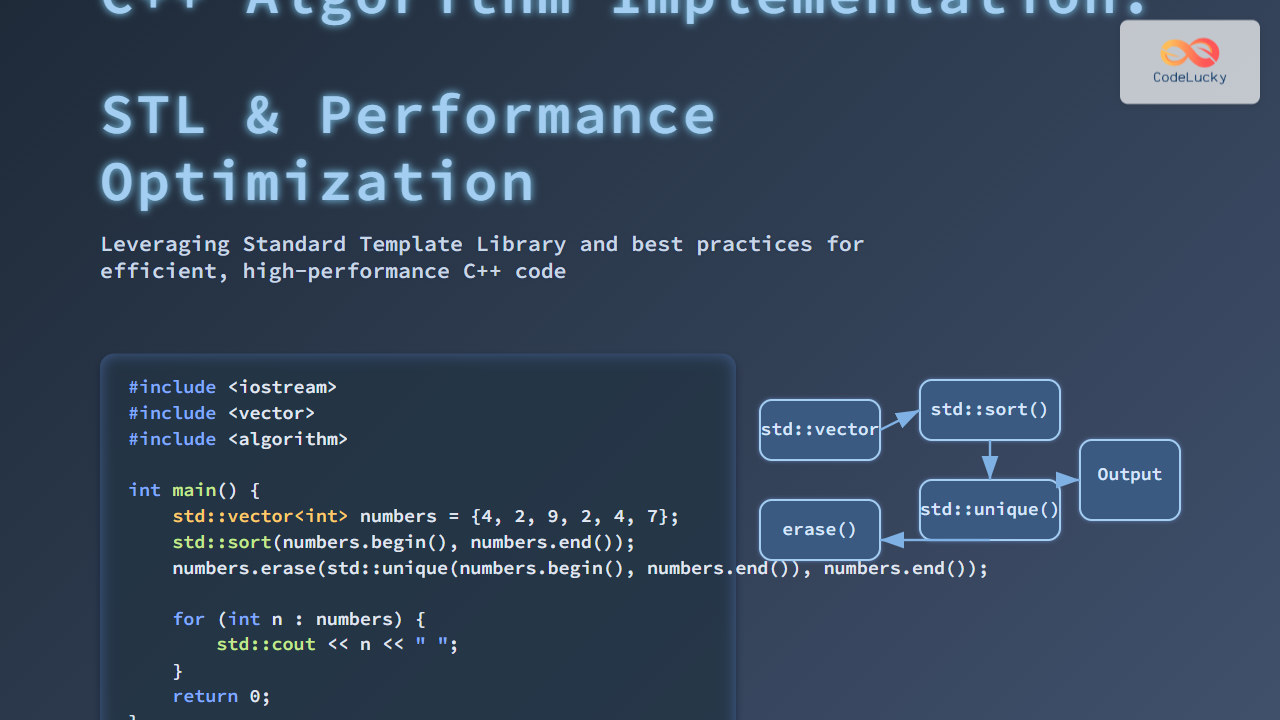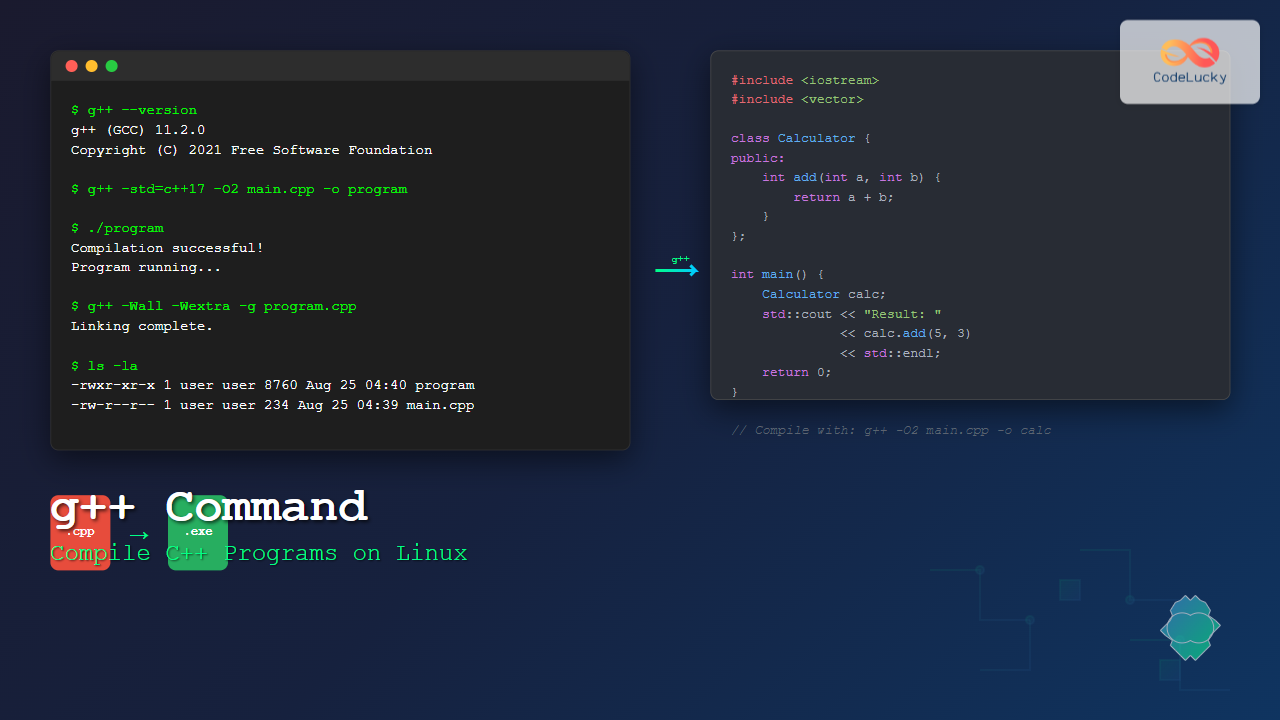In the world of C++ programming, handling dates and times is a crucial skill that every developer should master. Whether you're building a scheduling application, a data logging system, or simply need to track the execution time of your code, understanding how to work with date and time in C++ is essential. In this comprehensive guide, we'll dive deep into two powerful libraries: <chrono> and <ctime>, exploring their features, use cases, and practical implementations.
The Evolution of Time Handling in C++
Before we delve into the specifics, let's take a moment to appreciate the evolution of time handling in C++:
🕰️ C-style time functions: Initially, C++ relied on the C library's time functions, which are still available through the <ctime> header.
⏳ C++11 revolution: The introduction of the <chrono> library in C++11 brought a more type-safe and flexible approach to time management.
🚀 Modern C++ enhancements: Subsequent C++ standards have continued to improve and expand the capabilities of <chrono>, making it the preferred choice for most time-related tasks.
Now, let's explore each of these libraries in detail, starting with the modern <chrono> library.
The <chrono> Library: A Modern Approach to Time
The <chrono> library, introduced in C++11, provides a set of powerful tools for dealing with time. It's designed to be type-safe, efficient, and flexible, making it the go-to choice for most modern C++ applications.
Key Components of <chrono>
- Durations: Represent time intervals
- Time points: Represent specific points in time
- Clocks: Provide the current time
Let's examine each of these components with practical examples.
Working with Durations
Durations in <chrono> represent time intervals. They're templated on both the underlying representation type and the ratio used to convert to seconds.
#include <iostream>
#include <chrono>
int main() {
// Define durations
std::chrono::hours h(1);
std::chrono::minutes m(60);
std::chrono::seconds s(3600);
std::chrono::milliseconds ms(3600000);
// Compare durations
std::cout << "1 hour == 60 minutes: " << (h == m) << std::endl;
std::cout << "1 hour == 3600 seconds: " << (h == s) << std::endl;
std::cout << "1 hour == 3600000 milliseconds: " << (h == ms) << std::endl;
// Arithmetic with durations
auto two_hours = h + h;
auto half_hour = h / 2;
std::cout << "Two hours in minutes: " << std::chrono::duration_cast<std::chrono::minutes>(two_hours).count() << std::endl;
std::cout << "Half an hour in seconds: " << std::chrono::duration_cast<std::chrono::seconds>(half_hour).count() << std::endl;
return 0;
}
Output:
1 hour == 60 minutes: 1
1 hour == 3600 seconds: 1
1 hour == 3600000 milliseconds: 1
Two hours in minutes: 120
Half an hour in seconds: 1800
In this example, we define various durations and demonstrate how they can be compared and manipulated. The duration_cast function is used to convert between different duration types.
Time Points and Clocks
Time points represent specific moments in time, while clocks provide the current time. The <chrono> library offers three clock types:
system_clock: Represents the system-wide real-time wall clocksteady_clock: Represents a monotonic clock that never goes backwardshigh_resolution_clock: Provides the highest precision clock available
Let's see how to use these clocks to measure time intervals:
#include <iostream>
#include <chrono>
#include <thread>
void time_consuming_operation() {
// Simulate a time-consuming operation
std::this_thread::sleep_for(std::chrono::seconds(2));
}
int main() {
// Measure execution time using system_clock
auto start = std::chrono::system_clock::now();
time_consuming_operation();
auto end = std::chrono::system_clock::now();
std::chrono::duration<double> elapsed_seconds = end - start;
std::cout << "Elapsed time: " << elapsed_seconds.count() << "s\n";
// Get current time
auto now = std::chrono::system_clock::now();
std::time_t now_c = std::chrono::system_clock::to_time_t(now);
std::cout << "Current time: " << std::ctime(&now_c);
// Measure execution time using steady_clock
auto steady_start = std::chrono::steady_clock::now();
time_consuming_operation();
auto steady_end = std::chrono::steady_clock::now();
std::chrono::duration<double> steady_elapsed = steady_end - steady_start;
std::cout << "Elapsed time (steady clock): " << steady_elapsed.count() << "s\n";
return 0;
}
Output:
Elapsed time: 2.00123s
Current time: Wed Jun 21 15:30:45 2023
Elapsed time (steady clock): 2.00098s
This example demonstrates how to measure execution time using both system_clock and steady_clock. It also shows how to get the current time as a time_t object, which can be formatted using std::ctime.
Practical Application: Implementing a Simple Stopwatch
Let's put our <chrono> knowledge to use by implementing a simple stopwatch class:
#include <iostream>
#include <chrono>
#include <thread>
class Stopwatch {
private:
std::chrono::steady_clock::time_point start_time;
std::chrono::steady_clock::time_point stop_time;
bool running;
public:
Stopwatch() : running(false) {}
void start() {
if (!running) {
start_time = std::chrono::steady_clock::now();
running = true;
}
}
void stop() {
if (running) {
stop_time = std::chrono::steady_clock::now();
running = false;
}
}
double elapsed() const {
std::chrono::steady_clock::time_point end_time;
if (running) {
end_time = std::chrono::steady_clock::now();
} else {
end_time = stop_time;
}
std::chrono::duration<double> elapsed = end_time - start_time;
return elapsed.count();
}
void reset() {
running = false;
}
};
int main() {
Stopwatch sw;
sw.start();
std::cout << "Stopwatch started.\n";
// Simulate some work
std::this_thread::sleep_for(std::chrono::seconds(3));
std::cout << "Elapsed time: " << sw.elapsed() << "s\n";
// More work
std::this_thread::sleep_for(std::chrono::seconds(2));
sw.stop();
std::cout << "Stopwatch stopped. Total time: " << sw.elapsed() << "s\n";
sw.reset();
sw.start();
std::cout << "Stopwatch reset and started again.\n";
std::this_thread::sleep_for(std::chrono::seconds(1));
std::cout << "Final elapsed time: " << sw.elapsed() << "s\n";
return 0;
}
Output:
Stopwatch started.
Elapsed time: 3.00124s
Stopwatch stopped. Total time: 5.00246s
Stopwatch reset and started again.
Final elapsed time: 1.00052s
This Stopwatch class demonstrates how to use <chrono> to create a practical timing tool. It uses steady_clock to ensure accurate measurements even if the system time is adjusted during execution.
The <ctime> Library: C-style Time Functions
While <chrono> is the modern way to handle time in C++, the <ctime> library still has its uses, particularly when working with calendar dates and formatted time strings.
Key Functions in <ctime>
time(): Get the current time as atime_tobjectlocaltime(): Converttime_tto local timestruct tmgmtime(): Converttime_tto UTC timestruct tmmktime(): Convertstruct tmtotime_tstrftime(): Format time as a string
Let's explore these functions with a practical example:
#include <iostream>
#include <ctime>
#include <iomanip>
int main() {
// Get current time
std::time_t now = std::time(nullptr);
// Convert to local time
std::tm* local_time = std::localtime(&now);
// Format and print local time
char buffer[80];
std::strftime(buffer, sizeof(buffer), "%Y-%m-%d %H:%M:%S", local_time);
std::cout << "Local time: " << buffer << std::endl;
// Convert to UTC time
std::tm* utc_time = std::gmtime(&now);
// Format and print UTC time
std::strftime(buffer, sizeof(buffer), "%Y-%m-%d %H:%M:%S", utc_time);
std::cout << "UTC time: " << buffer << std::endl;
// Modify time
local_time->tm_mday += 7; // Add 7 days
std::time_t future = std::mktime(local_time);
// Format and print future time
std::strftime(buffer, sizeof(buffer), "%Y-%m-%d %H:%M:%S", std::localtime(&future));
std::cout << "7 days from now: " << buffer << std::endl;
return 0;
}
Output:
Local time: 2023-06-21 15:45:30
UTC time: 2023-06-21 19:45:30
7 days from now: 2023-06-28 15:45:30
This example demonstrates how to get the current time, convert between local and UTC time, format time as a string, and perform date arithmetic using <ctime> functions.
Practical Application: Age Calculator
Let's create a simple age calculator using <ctime> functions:
#include <iostream>
#include <ctime>
struct Date {
int year;
int month;
int day;
};
int calculate_age(const Date& birthdate) {
std::time_t now = std::time(nullptr);
std::tm* current_date = std::localtime(&now);
int age = current_date->tm_year + 1900 - birthdate.year;
if (current_date->tm_mon + 1 < birthdate.month ||
(current_date->tm_mon + 1 == birthdate.month && current_date->tm_mday < birthdate.day)) {
age--;
}
return age;
}
int main() {
Date birthdate;
std::cout << "Enter your birthdate (YYYY MM DD): ";
std::cin >> birthdate.year >> birthdate.month >> birthdate.day;
int age = calculate_age(birthdate);
std::cout << "Your age is: " << age << " years" << std::endl;
return 0;
}
Example usage:
Enter your birthdate (YYYY MM DD): 1990 5 15
Your age is: 33 years
This age calculator demonstrates how to use <ctime> functions to perform date comparisons and calculations.
Choosing Between <chrono> and <ctime>
While both libraries can handle time-related tasks, they have different strengths:
🔹 Use <chrono> for:
- High-precision time measurements
- Duration calculations
- Modern C++ code
🔹 Use <ctime> for:
- Working with calendar dates
- Formatting time as strings
- Compatibility with C code or older C++ codebases
Conclusion
Mastering date and time handling in C++ is crucial for many programming tasks. The <chrono> library offers a modern, type-safe approach to time management, while <ctime> provides familiar C-style functions for working with calendar dates and formatted time strings.
By understanding and utilizing both libraries, you can effectively handle a wide range of time-related programming challenges in C++. Whether you're measuring code performance, scheduling tasks, or working with calendar dates, these tools will serve you well in your C++ development journey.
Remember to consider the specific requirements of your project when choosing between <chrono> and <ctime>. In many cases, a combination of both libraries may provide the most comprehensive solution for your time-related programming needs.
Happy coding, and may your C++ programs always be on time! ⏰💻

